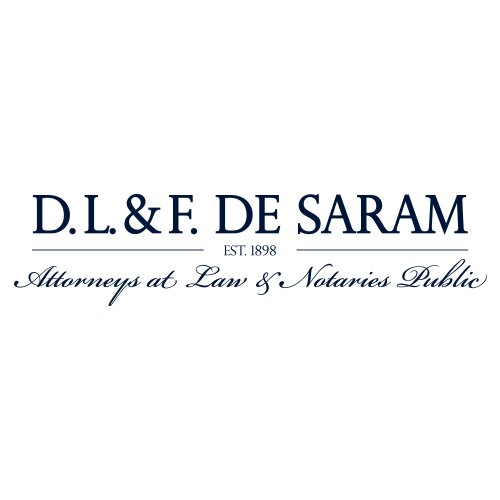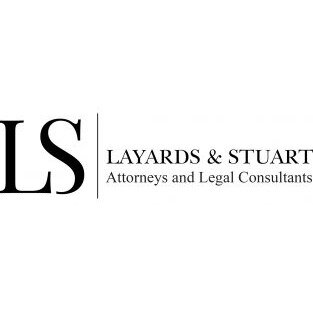Best Real Estate Lawyers in Sri Lanka
Share your needs with us, get contacted by law firms.
Free. Takes 2 min.
Free Guide to Hiring a Real Estate Lawyer
Or refine your search by selecting a city:
List of the best lawyers in Sri Lanka
About Real Estate Law in Sri Lanka
Real Estate Law in Sri Lanka governs the rights and obligations related to land and property transactions. It encompasses various aspects including ownership, buying, selling, leasing, and land use. The legal framework is designed to ensure transparency, fairness, and the protection of both buyer and seller interests. Property rights in Sri Lanka are primarily regulated by statutes such as the Land Development Ordinance, Registration of Documents Ordinance, and the Apartment Ownership Law, among others.
Why You May Need a Lawyer
There are several scenarios where legal expertise in real estate is crucial:
- Property Transactions: Buying, selling, or leasing property often involves complex documentation and legal procedures that necessitate a lawyer's assistance.
- Property Disputes: Disputes can arise over boundaries, ownership claims, or inheritance issues, requiring legal intervention to resolve.
- Development and Construction: Real estate development projects involve navigating regulatory approvals and compliance with zoning laws, where legal guidance is essential.
- Due Diligence: Conducting due diligence before property transactions to ensure there are no legal impediments to the sale.
- Mortgage Agreements: Legal advice is often necessary when dealing with mortgage agreements to ensure fair terms and conditions.
Local Laws Overview
Key aspects of real estate laws in Sri Lanka include:
- Title Registration: The Registration of Documents Ordinance mandates the registration of deeds and titles to establish ownership and prevent disputes.
- Land Development Ordinance: Regulates the alienation, development, and reservation of state lands.
- Apartment Ownership Law: Governs the ownership of apartments and condominiums, enabling individual ownership within a shared property.
- Foreign Ownership: There are restrictions on foreign ownership of land in Sri Lanka, with certain exceptions for condominium purchases.
- Zoning Laws: Regulate the use of land and ensure the development aligns with urban planning and environmental considerations.
Frequently Asked Questions
1. Can foreigners own land in Sri Lanka?
Foreigners cannot directly own land in Sri Lanka. However, they can invest in condominiums and hold lands on long-term leases.
2. What is the process of transferring property ownership?
The process involves executing a deed of transfer, paying stamp duties, and registering the deed at the Land Registry to make the transfer legally binding.
3. What are the taxes involved in real estate transactions?
Taxes can include stamp duty on the deed of transfer, capital gains tax, and other local government levies depending on the property location.
4. How can I verify the title of a property?
Engage a lawyer to conduct a title search at the Land Registry to verify ownership and check for any encumbrances or liens on the property.
5. What should I consider when drafting a lease agreement?
Key considerations include the lease term, rent amount, renewal terms, maintenance responsibilities, and tenant rights.
6. Is it necessary to hire a lawyer for a real estate transaction?
While not mandatory, hiring a lawyer ensures that the legal aspects of the transaction are handled correctly, minimizing the risk of future disputes.
7. How are property disputes resolved in Sri Lanka?
Property disputes can be resolved through negotiation, mediation, or litigation in the local civil courts, depending on the nature of the dispute.
8. What is a condominium certificate of conformity?
This certificate is issued after construction is completed and it confirms that the condominium has been built in accordance with approved plans and regulations.
9. Do inheritance laws affect property ownership?
Yes, Sharia law affects the division of property for Muslim Sri Lankans, while general inheritance laws apply to others in accordance with the 1975 Law of Succession.
10. What are the common legal issues faced by real estate developers?
Issues may include obtaining necessary permits, complying with zoning regulations, securing funding, and resolving contractor disputes.
Additional Resources
For further assistance, consider reaching out to these resources:
- Land Registry Department: Responsible for the registration of land titles and deeds.
- Urban Development Authority (UDA): Major regulatory authority overseeing urban planning and development.
- Board of Investment (BOI): Facilitates foreign investment and can provide guidance on real estate investments by foreigners.
- Ministry of Land and Land Development: Central body for land policies and management.
Next Steps
If you require legal assistance in real estate, consider these steps:
- Identify your specific legal needs related to real estate and gather all pertinent documents.
- Consult a qualified real estate lawyer in Sri Lanka. The Bar Association of Sri Lanka can help you find registered lawyers.
- Discuss your case thoroughly, outlining all objectives and potential legal challenges.
- Ensure clear communication with your lawyer regarding fees, timelines, and anticipated outcomes.
Lawzana helps you find the best lawyers and law firms in Sri Lanka through a curated and pre-screened list of qualified legal professionals. Our platform offers rankings and detailed profiles of attorneys and law firms, allowing you to compare based on practice areas, including Real Estate, experience, and client feedback.
Each profile includes a description of the firm's areas of practice, client reviews, team members and partners, year of establishment, spoken languages, office locations, contact information, social media presence, and any published articles or resources. Most firms on our platform speak English and are experienced in both local and international legal matters.
Get a quote from top-rated law firms in Sri Lanka — quickly, securely, and without unnecessary hassle.
Disclaimer:
The information provided on this page is for general informational purposes only and does not constitute legal advice. While we strive to ensure the accuracy and relevance of the content, legal information may change over time, and interpretations of the law can vary. You should always consult with a qualified legal professional for advice specific to your situation.
We disclaim all liability for actions taken or not taken based on the content of this page. If you believe any information is incorrect or outdated, please contact us, and we will review and update it where appropriate.
Browse real estate law firms by service in Sri Lanka
Sri Lanka Attorneys in related practice areas.
Browse real estate law firms by city in Sri Lanka
Refine your search by selecting a city.

















